#Britanny
Explore tagged Tumblr posts
Photo

Great Britain (Red) and Brittany (Yellow) in European Languages
Imagine British tourists visiting Paris, France, proudly telling the local French people they're from Britain. The French responded with, 'Oh really, Britain (Bretagne)? That’s a lovely region in western France!' The Brits, slightly confused, reply, 'No, no—Great Britain (Grande Bretagne)!' LOL!
by Aggravating-Walk-309/reddit
85 notes
·
View notes
Text

Ouessant, France
#jlepape#monochrome#blackandwhite#bnw#photographers on tumblr#photooftheday#landscapephoto#bw_lover#photography#original photographers#raw community#britanny
83 notes
·
View notes
Text

Eternelle Bretagne
64 notes
·
View notes
Text
The hell ship of Brittany
More a fragment of a ghost ship story than a complete story because that's all I could find. For centuries, a ship is said to be up to mischief off the coast of Brittany. It is said to be manned by giants and hellhounds and they are supposed to serve on the ship until they have atoned for the crimes they once committed in their lifetime. She always gets new crew because every serious criminal becomes part of her crew even if she has not yet docked in a harbour.
37 notes
·
View notes
Text

Mother britanny we miss you
#britanny#britanny murphy#uptown girls#uptowngirl#pinterest#silly#kms#sos#iwandie#ithinkikindalooklikeher#uhhhimbeingsilly#waituntilibecomeunderweightagainandimwinnibg#savememother#fyp#pink#aesthetic#hashtagwhatever#followme
12 notes
·
View notes
Text

It is now, good boi hours. He might be an old buddy but he still deserve love.
5 notes
·
View notes
Text

Cote d'Emerald, 2019
#seagull#france#bretagne#britanny#sea#rock#rocks#cliff#cliffs#travel#seaside#bird#birds#animal#animals
16 notes
·
View notes
Text






Coast of Brittany
4 notes
·
View notes
Text

I made some progress on this piece
15 notes
·
View notes
Text
I obsess over two poems

"The drum pounds to the step of the Vreton And in fearless combat, Arthur will return!" This part got me, the same faith and honour in the ultimate ideal. But the next part is what got me the most.
youtube
"The soul of the (Celtic) race resounds in our hearts, And the Celtic spirit, she can not be wrong to us! Nevenoe and Kadoudal calls us to the moorland The French, frightened as they see us to go to battle!"
And such a simple refrain at the end, "For our life, bread, freedom and peace! To build the foundations of a better world!"
And the end, a great rallying cry. "Arise, victory will be ours if we endure the pain. THe old enemy, shall suffer with great harshness! The holy sunlight will illuminate the beautiful day ANd we will gain justice for the Vreton State!"
I love this song so much, I don't speak Vreizh so I couldn't really follow along but I do speak good enough French, and this video had french subtitles and then it closes with a picture of two Vreton men showing their national pride, I love it!
Every Celtic nation must have this spirit, the Celtic spirit is not wrong to us either! We must gain justice for the Albannach state and make the false Saxon reel again. The Vretons are an inspiration to me. Such a faitful and patrotic nation, we are lucky to be their brothers. If we can ever create a Pan Celtic nation, which I faithfully believe in, we must include them!
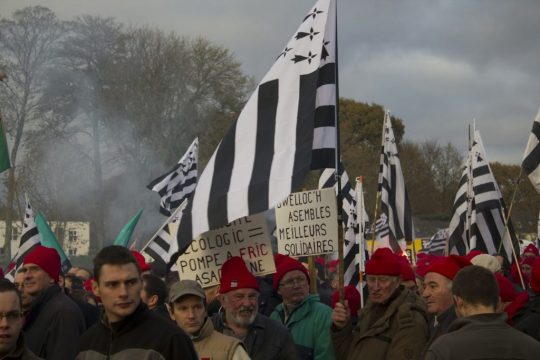
It kinda reminds me of a favourite song of mine, til Ungdommen, or "to the youth." Which is my favourite song in human existence.
"Besieged by enemies, walk the path of your time Under a bloody storm, commit yourself to war!"
youtube
It starts strong, commit yourself to a war! And your only sword is the faith in humanities worth, that's what I love about this song. And then comes the victory, "Quietly conveys the grenades rolling belt, stop their drive for death! Stop them with spirit!" War is contempt for life, peace is to create! Throw in all your might and death will lose! Love and enriched is that dream, everything great that was! Go for the unknown, wrest for her answers! Uninhabited power stations, unknown stars Create them, with spared lives, you bold (youthful) brains! Noble is man, the earth is rich! If distress and hunger is found here? It is because of (fraternal) betrayal! Crush it! In life's name will injustice fall! And sunshine, bread and spirit, owned by all! Then drop the weapons, powerlessly down If we create respecte for life, we create peace."
This is the meat of the poem, in my opinion and it's peak. The beautiful imagery, the hope, the unbridled pure hope. Naive though it may be, it's hope, pure, unadulterated hope and faith in our common goodness to create a better world. A world where no mother mourns her son, where no one goes hungry, this faith and hope dashed just a few years after but still resounds in our hearts. Listening to it just fills you with human pride, human desire and human warmth. Ack! I am gushing again, I must stop myself, oh well
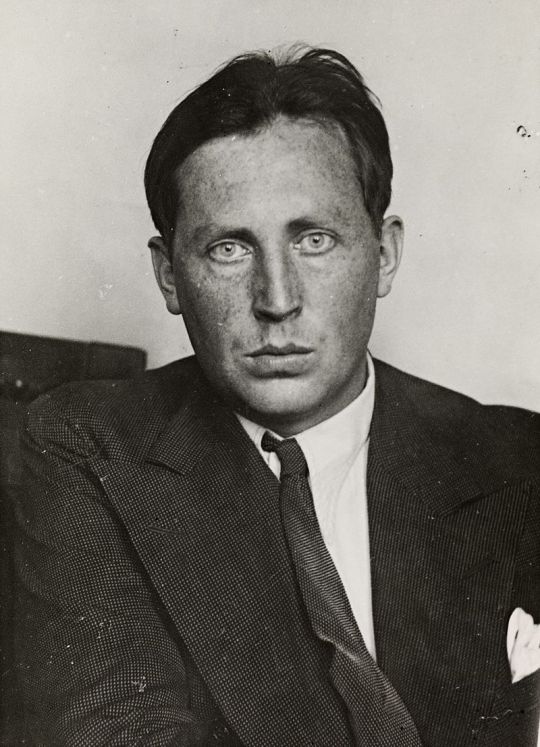
The man who wrote this poem would be sadly murdered during the war. He became a Marxist and became a Norwegian soldier. He fought bravely, he fought unconquerably and defied the fascist scum. What a hero, what a god damn hero.
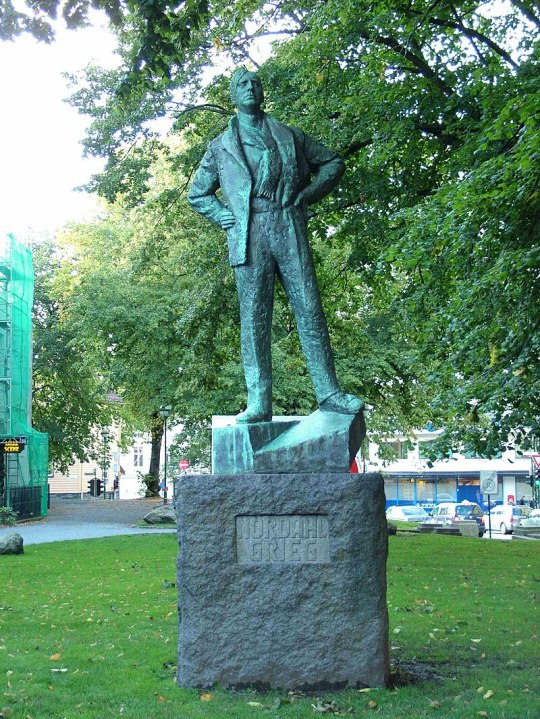
4 notes
·
View notes
Photo

Brittany, a historical nation of Europe
103 notes
·
View notes
Text
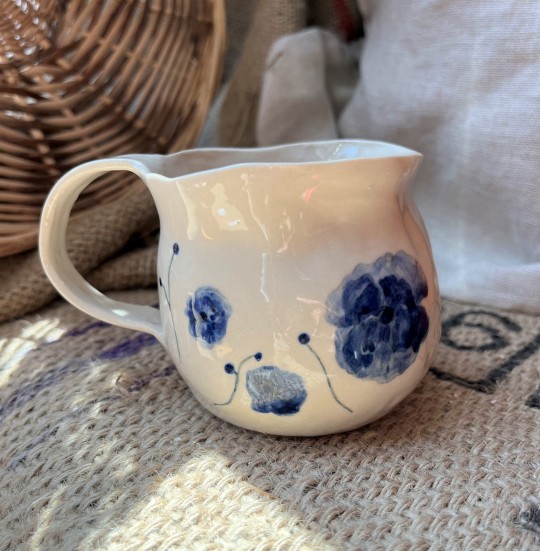
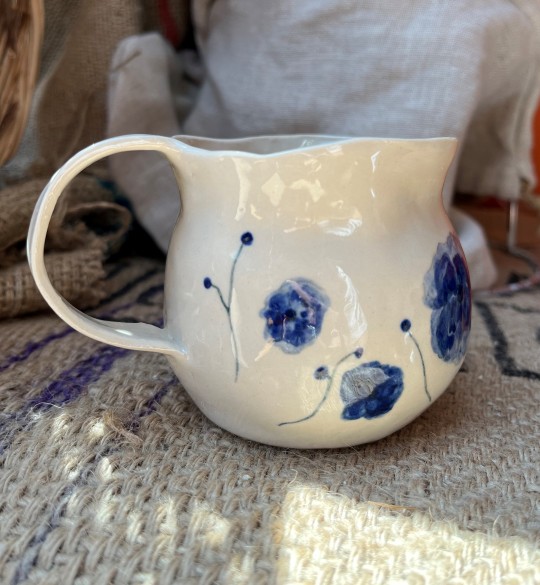
Nouvelle tasse en ligne sur la boutique💙
New mug in the shop!!
(the delivery price for country other than france has been lowered :)
#cottagecore#cottagecore ceramic#handmade crafts#pottery#handmade ceramics#cottageblr#cottage vibes#countrycore#small business#artistsupport#french#france#bzh#bretagne#Britanny#finistere#mug#flower mug#cottagecore mug#tasse#ceramica#ceramic art#ceramics#clay#painting#flowers#Instagram#handmade#handcrafted
21 notes
·
View notes
Text

Ouessant, France
#jlepape#monochrome#blackandwhite#bnw#photographers on tumblr#photooftheday#landscapephoto#bw_lover#photography#original photographers#raw community#britanny#lighthouse
57 notes
·
View notes
Text
Sailors Superstition - Brittany
Many of the superstitions that the seafarers had coincided in many ways with those of many countries in Europe and America. But there are also some country-specific ones, and here today are the Bretons.
For example, our Breton friends believed that if they saw a donkey when they went out, it was a good omen. Because the animal was thought to be stupid but brave.
In other navies, such as the Royal Navy, the Norwegians or the Danes, rabbits were taboo on board, as they were considered to bring absolute bad luck. So with the Bretons, it was enough to see a rabbit to bless the voyage with bad luck, and fishermen could then pack up and go ashore again, because they could no longer expect a good catch.
Black cats were equally unpopular with fishermen. Unlike in the Navy, where they were considered lucky. But the fishermen also believed that seeing a black cat before setting sail was enough to postpone or even cancel the trip. It was also once believed that black cats possessed the power to ruin the day's catch if they merely crossed the path of the fishermen here. Although they were considered unlucky, they could not simply be killed, because that would bring bad weather.
The bird kingdom was also affected by superstition. So the fishermen didn't want to encounter a Comoran, because it would make for a small catch and if it screamed, a storm would soon come. The same applied to the cry of seagulls, when at the same time the waves rolled onto the beach.
A similar belief prevailed in the bay of Saint-Malo in the east, where the sight of seagulls on the Phare du Jardin lighthouse announced that a ship from Saint-Malo had been lost; the number of resting seagulls corresponded to the number of expected fatalities.
Black-headed seagulls, however, were considered a good omen for good weather.
Women were also a contentious issue, because normally women were not allowed on board ships because they would bring bad luck. They were also not allowed to comb their hair on the beach after dark, because that would cause a storm. But to get a good fishing season, the captain's wife was allowed to choose a man from the crew to spend the night with. To calm the sea, the woman lifted her skirts in the early morning and showed her unclothed underbelly to the sea.
The fishermen were also afraid of rainbows. They were considered a bridge between the living and the dead and could bring the sailor to the land of the dead if he sailed under it. That's why he had to spit on it, which would disrupt the sphere and the bridge and then he could safely pass under it.
#naval history#sailors superstition#britanny#france#17th- 19th century#age of sail#age of steam#modern
99 notes
·
View notes
Text

SUR LE PONT (Quimper - printemps 2024)
ishootfilm 📷 [Série bretonne sur pellicule #lomography #400iso] Quimper dans la brume.
3 notes
·
View notes
Text

Folklore garments from Pont-l'Abbé, Brittany region of France
French vintage postcard, mailed in 1909
#old#postcard#pont#postkaart#folklore#pont-l'abbé#french#vintage#briefkaart#britanny#postal#garments#region#ansichtskarte#ephemera#1909#photography#photo#postkarte#tarjeta#france#mailed#labb#historic#sepia#carte postale
6 notes
·
View notes